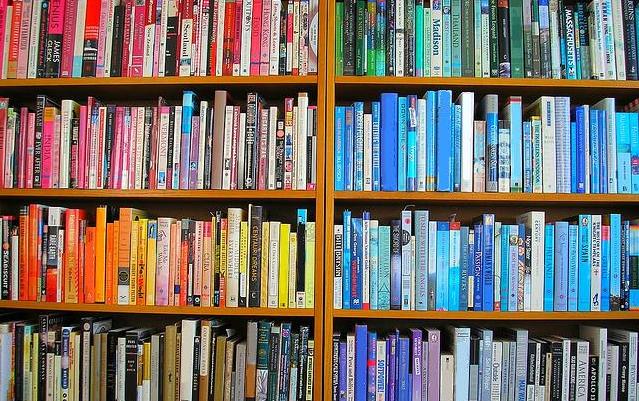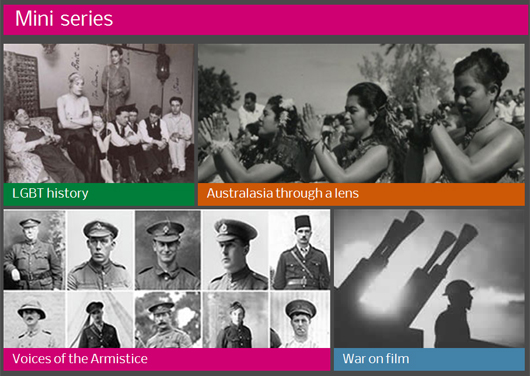“Claiming our history, celebrating our past, creating our future!” is the motto of LGBT history month which begins today.
LGBT (Lesbian, Gay, Bisexual and Transgender) history has been in focus at The National Archives for a while now and we have many things going on to contribute to the aim above, and encourage future research in the area.

The rainbow of LGBT can be found in many archives and libraries. Source: www.flickr.com/photos/bluemarla/229631339/in/set-72157608188767044/
Today sees the re-launch of our Gay and Lesbian history research guide which has been updated and streamlined to make it more user-friendly for those starting out in their research. It suggests a number of areas where users may wish to begin, but also, importantly, it suggests historical terminology to use in our online catalogue.
For example, the words ‘gay’ or ‘lesbian’ are modern constructs. If you search for them in the catalogue, you will only find a fraction of the relevant documents we hold. However, using contemporary language from the period in which the document was created, such as ‘unnatural act’, will be much more fruitful.
Although historical words and phrases may now be considered offensive, it is important that we remain true to the original record as archivists and avoid using modern-day interpretation in our catalogue descriptions. This is largely for two key reasons. Firstly, in many cases we cannot be absolutely sure that a certain term used in the past means what we think it does today. Secondly, considering how quickly acceptable terminology has changed over the past hundred years, we again cannot be sure that words we use today will not be considered offensive in the future.
The challenge of connecting researchers with terminology is being helped by the new ‘user tagging’ system on Discovery, our catalogue. As documents are identified as containing LGBT relevant information, we are asking researchers to assist us by ‘tagging’ these documents with ‘LGBT’. This means that, while leaving the catalogue description as it is, we can still help users to find relevant material. When you search the tags section of Discovery now, you will find a growing list of documents tagged and easily identifiable as LGBT-relevant, even where their catalogue descriptions may not be.
As well as this, we now have a dedicated LGBT history list on our library catalogue, allowing researchers to identify very quickly which areas of the library collection may be of use to them while they are visiting us.

The National Archives' podcast mini-series, including the new LGBT collection.
Finally, on 16 February we will be speaking at the London Metropolitan Archives ‘Brave new world’ conference, which promises to be a celebration of the advances in the research field and lively discussion about what happens next.
If you’re interested in finding out more about LGBT history, I recommend the LGBT History Project who have been carrying out research at The National Archives and other archives, and sharing their results for which we are very grateful. Also, the British Museum’s same-sex desire and gender theme which highlights relevant sources in their collection, proving that examples of LGBT history can be found almost anywhere!
The National Archives’ collection is only one side of the LGBT story. It is important for researchers to gather as complete a picture as possible. LGBT archive collections across the country can be identified through our Access to Archives database and the National Register of Archives. In particular in London, the London Metropolitan Archives and the Hall-Carpenter Archives are extremely valuable sources. LGBT dedicated archives and museums are expanding the world-over, however, and it is worth exploring your local area to find out what gems are held near you.
It’s heartening to learn that the National Archive is using documents to help us understand more about lesbian and gay history. I as particularly interested to read about the earliest document mentioned in the pieces and the use of agent provocateurs. This practice up until fairly recently has been used I understand.
Many Thanks,
Julia